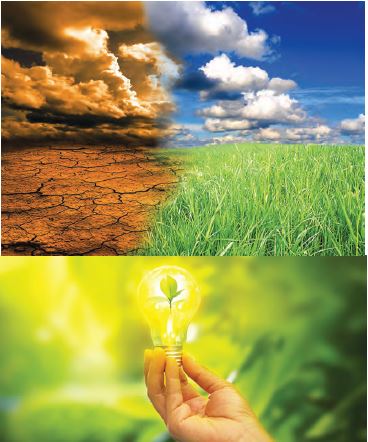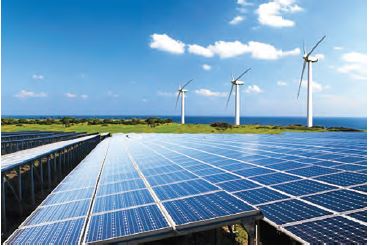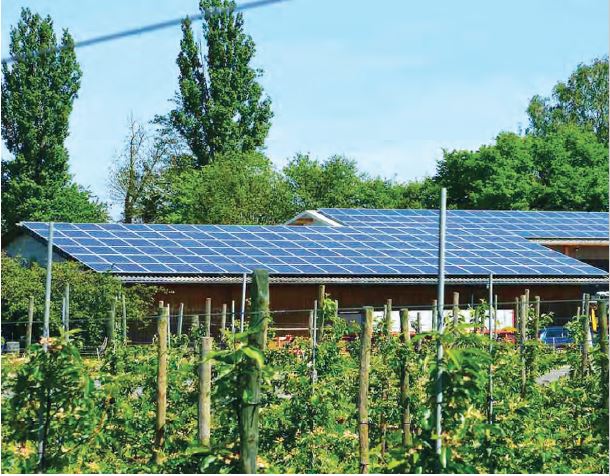 |
|
 |
STORY
DETAILS |
 |
|
| |
| |
 |
| Cover Story
|
 |
 |
| Textiles’ – the word brings up images of beautiful drapes – cotton, silk, chiffon, lace. Whether it is the material draped on the figurine of the lady f... |
|
 |
| |
read more... |
 |
|
 |
Lead Article
Textiles the word brings up images of beautiful drapes cotton, silk, chiffon, lace. Whether it is the material draped on the figurine of the lady from Mohenjadaro, the stylish drapes of Cleopatra, the ball dance gowns of the Victorian Era or the lovely dresses worn by our own queens and princesse...
read more... |
|
 |
| Articles |
 |
 |

|
|
Tapping Sustainable Energy Alternatives
|
|
|
The second lead article, which is also focus article, is written by Shri N Bhadran Nair. Citing a report of the World Health Organisation, the author has advocated for tapping sustainable energy alternatives
|

|

|

|

|
|
Financing Renewables in India
|
|
|
The third article is written by Shri P C Maithani, Adviser, Ministry of New and Renewable Energy. He has focussed on renewable energy resources
|

|

|

|
|
Steps to Achieve India’s Solar Potential
|
|
|
The special article is written by Sumant Sinha, Chairman and Managing Director of ReNew Power. He opines that India must also honour its global commitments on curbing greenhouse gas emissions
|

|

|
|
|
|
|
|
|
|
Maintaining Momentum post Copenhagen
Namrata Kala
Alark Saxena |
|
 The recent global climate change treaty, also known as the Copenhagen accord, was signed on Dec 18th 2009. Delegates from 193 countries and numerous NGO’s convened in the 15th conference of parties (COP) and more than 100 heads of states participated during the final days of the conference. Under prevailing chaos and confusion, the accord was signed by Brazil,
South Africa, India, china (BASIC countries) along with United States outside the UNFCCC process. Amidst expectations of a separate negotiating text being brought out by the host country, this accord came as a shock to the rest of the participating countries. The Copenhagen Accord (CA) in many ways turned out to be a lip service to the futures of countries impacted by climate change. Most of the vulnerable countries were disillusioned by the process and lack of political will amongst countries to come to an agreement. There is growing anxiousness in the global civil society about the future of climate negotiations post Copenhagen and the actions taken by major emitters of the world. This article is aimed towards how the current momentum on issues of climate change within India can be maintained through careful planning, engagement of the business, industry and participation of youth as members of civil society for future sustainable prosperity. The recent global climate change treaty, also known as the Copenhagen accord, was signed on Dec 18th 2009. Delegates from 193 countries and numerous NGO’s convened in the 15th conference of parties (COP) and more than 100 heads of states participated during the final days of the conference. Under prevailing chaos and confusion, the accord was signed by Brazil,
South Africa, India, china (BASIC countries) along with United States outside the UNFCCC process. Amidst expectations of a separate negotiating text being brought out by the host country, this accord came as a shock to the rest of the participating countries. The Copenhagen Accord (CA) in many ways turned out to be a lip service to the futures of countries impacted by climate change. Most of the vulnerable countries were disillusioned by the process and lack of political will amongst countries to come to an agreement. There is growing anxiousness in the global civil society about the future of climate negotiations post Copenhagen and the actions taken by major emitters of the world. This article is aimed towards how the current momentum on issues of climate change within India can be maintained through careful planning, engagement of the business, industry and participation of youth as members of civil society for future sustainable prosperity.
Watering down the CA (reducing the ambitious mitigation targets) and making it legally non-binding, coupled with the global economic meltdown only suggests that there is less than required pressure on the major Green house Gas (GHG) emitting countries to aggressively reduce their emissions.
|
|
|
|
|
|
|
|
|
|
|
 |

|
Regional Languages
|
 |
|
|
 |
|
Regular
Column |
|
J&K Window : |

|
|
Do you know? : What is Forensic Auditing |
Forensic auditing refers to the auditing with the main aim to employ accounting techniques and methods to gather evidence to investigate the crimes on financial front such as theft, fraud etc.

|
|
|
 |
|
 |
 |